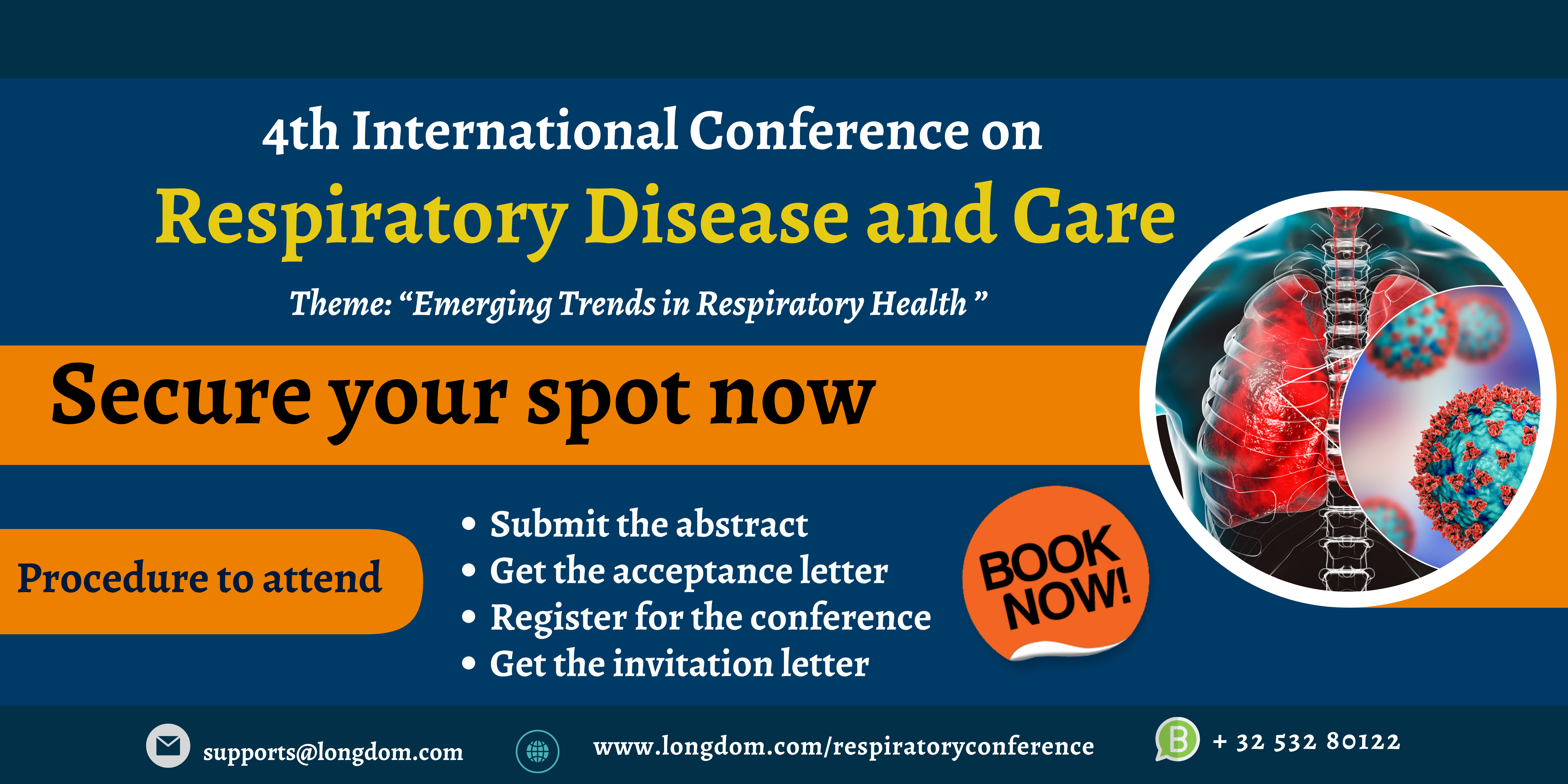You’re going to miss this if you don’t join today!: Respiratory Conference 2023

You’re going to miss this if you don’t join today!: Respiratory Conference 2023
What to know about Asthma Immunology?
Asthma is a common disease that affects 300 million people worldwide. Given a large number of eosinophils in the airways of people with mild asthma, and verified by data from murine models, asthma was long considered the hallmark T helper type 2 (TH2) disease of the airways. It is now known that some asthmatic inflammation is neutrophilic, controlled by the TH17 subset of helper T cells and that some eosinophilic inflammation is controlled by type 2 innate lymphoid cells (ILC2 cells) acting together with basophils. Here we discuss results from in-depth molecular studies of mouse models in light of the results from the first clinical trials targeting key cytokines in humans and describe the extraordinary heterogeneity of asthma.
Fast facts about Asthma Immunology
- Asthma is a chronic inflammation of the lung airways that causes coughing, chest tightness, wheezing or shortness of breath.
- 8.3% of Americans have asthma. Of these 26.5 million, 20.4 million are adults and 6.1 million are children.
- Asthma results in 439,000 hospitalizations and 1.3 million emergency room visits annually
- Asthma prevalence is higher in children (9.4 percent) than in adults (7.7 percent), and higher in females (9.2 percent) than males (7.0 percent)
- Weather conditions such as extremely dry, wet, or windy weather can worsen an asthma condition
- Asthma is the most common chronic illness in childhood, accounting for 13.8 million missed school days each year. It also accounts for 14.2 million lost work days for adults.
Medications of Asthma Immunology
Medications are used to treat asthma to reduce the chance of symptoms worsening, which could lead to the need for additional medications or a visit to the hospital or emergency room. Two important categories of medications are used for the daily management of asthma: rescue and controller therapies.
Rescue therapies are used on an as-needed basis to provide symptom relief within minutes. Some people with asthma need only a rescue inhaler, such as people who have symptoms only when they are physically active or people with intermittent asthma symptoms. However, using rescue therapy too often (more than 2 days a week) may be a sign of uncontrolled asthma and should be brought to the attention of a doctor. Short-acting bronchodilators are the standard rescue therapy for patients of all ages. Albuterol is a short-acting bronchodilator used for asthma and comes as an inhaler and nebulizer solution.
Controller therapies are used daily to treat the underlying inflammation and airway narrowing in an effort to obtain overall asthma control. Controller medications are not used to treat acute asthma attacks. Not all patients with asthma need a controller medicine. If your asthma symptoms happen more than 2 times per week, you wake up more than 2 nights per month, you need a rescue inhaler more than 2 days a week, or your asthma interferes with your daily activities, your asthma is likely severe enough to need controller therapy.
About Respiratory Conference 2023:
The respiratory system is the defining element for all active living beings who breathe air. Recently the covid-19 pandemic has consumed the global human population through respiratory disease, leaving a trail of loss and devastation. Respiratory Conference 2023 invites you to join the “4th International Conference on Respiratory Disease and Care” in Zurich, Switzerland. This Respiratory Conference comes at a very critical time to review what we have learned thus far and what we can propose going forward to protect and prevent situations like SARS-CoV-2 and many others. With this aim, this Respiratory Conference will attract all levels of pulmonologists, researchers, and industry personnel to a common platform for crucial collaborations to secure effective healthcare services for the future. The goal of Longdom Conferences is to bring together scientists at every level from diverse disciplines to understand and discuss throughout the programmed sessions and comfortable gatherings. All these opportunities will support the professional growth of younger scientists that will promote future collaborations and enhance participation and contribution to their exciting research work.
Submit abstract: https://www.longdom.com/respiratoryconference/abstract
Relevant Conferences:
Respiratory Conferences | Respiratory Meetings | Respiratory Workshops | Pulmonology Meetings | Pulmonology Symposiums | Pulmonology Workshops | Pulmonology Conferences | Lung Transplant Conferences | Lung Transplant workshops | Lung Transplant Meetings | Pulmonary Vascular Diseases Conferences